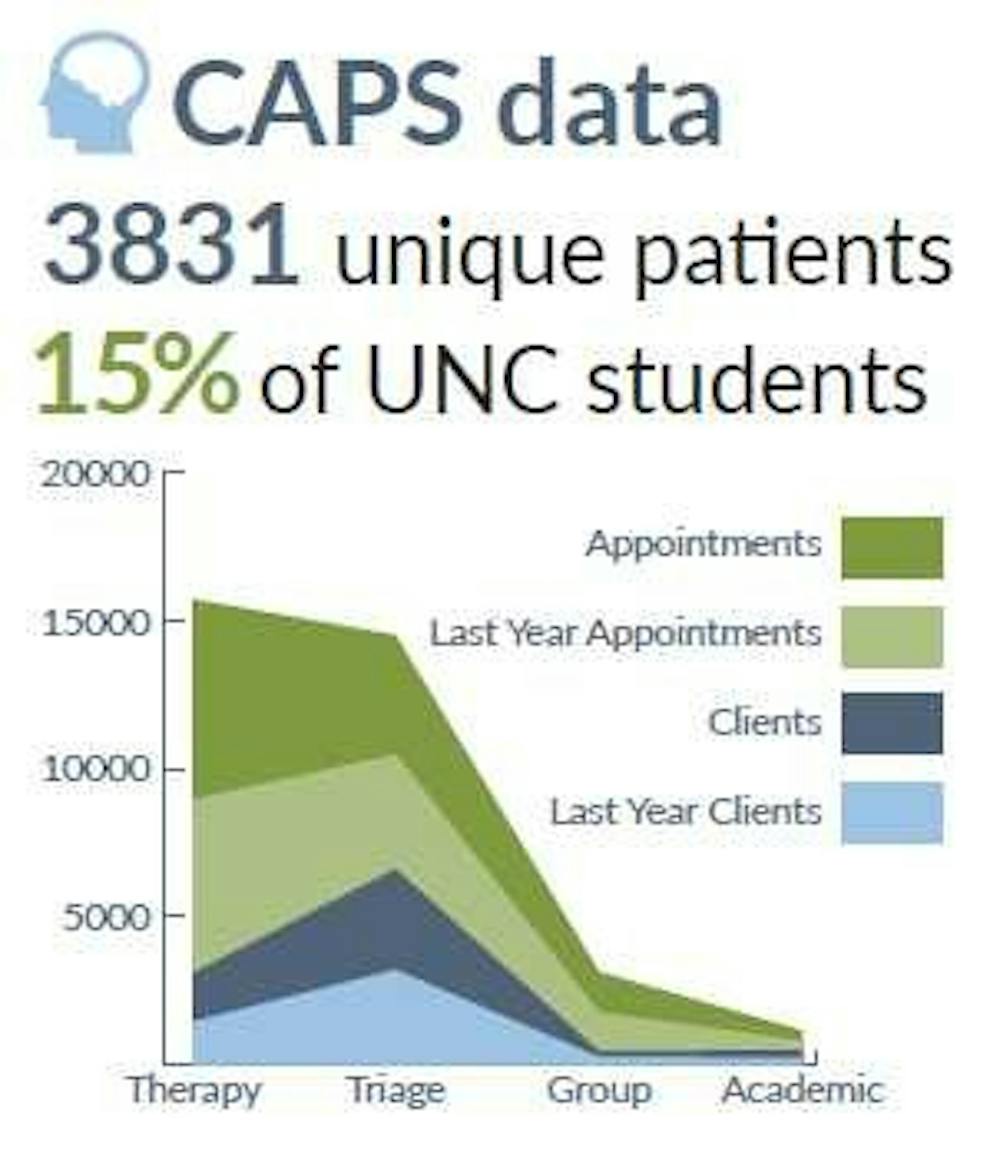A recent study found nearly half of the 100 largest public universities — including UNC-Chapel Hill — do not keep statistics on campus suicides.
Though UNC Counseling and Psychological Services records the number of suicides by students who have used their services, this number is not a full representation of all suicides.
Randy Young, UNC Public Safety's media relations manager, said in an email statement University police does not specifically track suicides and suicide attempts. He said the University releases an annual Campus Security Report as required by the federal Clery Act.
"A suicide is not a crime and therefore is not a statistic that is disclosed as part of the Campus Security Report,” Young said.
Danielle Oakley, director of CAPS at Duke University, said collecting information on suicides is not a simple process. Parents withdrawing students from school without a given reason, city police not sharing information with the university and cultural practices can all complicate a potential statistic.
“Reporting what we do know will often be inaccurate as we would miss some, especially in large institutions,” she said. “There is also some controversy about reporting numbers. Based on the rate of seven deaths per 100,000 students, the number will be small, and some may think that resources are not necessary.”
Allen O’Barr, a psychiatrist and director of UNC CAPS, said there are many challenges involved in preventing campus suicides, and keeping statistics is just one of them.
“The thing about it is you can’t really prevent suicide,” he said. “All you can do is do your best to get to people and to educate them and to help them, but you can’t prevent suicides.”
O’Barr said CAPS is focusing most of its limited resources on seeing students on a same-day basis. This also includes 24-hour service through UNC Hospitals and links to suicide hotlines for emergencies.




